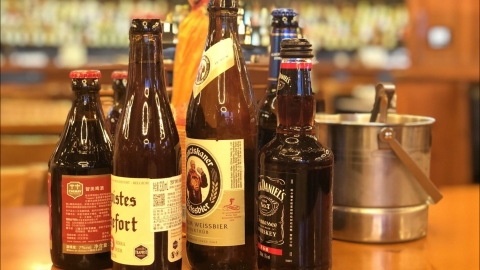Why does drinking beer cause blood vessels to dilate?
Generally speaking, drinking beer can cause vasodilation, which may be caused by alcohol's direct effect on vascular smooth muscle, increased prostaglandin synthesis, effects of alcohol metabolites, allergic reactions, or worsening of liver damage. If discomfort occurs, it is recommended to promptly visit a regular hospital for medical treatment. Detailed analysis is as follows:
1. Alcohol's direct effect on vascular smooth muscle
The alcohol in beer can directly penetrate vascular smooth muscle cells, causing the smooth muscle to relax and resulting in vasodilation. Reducing beer consumption, avoiding drinking on an empty stomach, and drinking water appropriately after alcohol consumption can help promote alcohol metabolism and reduce the degree of vasodilation.
2. Increased prostaglandin synthesis
Alcohol stimulates the body to produce more prostaglandins, substances that have a vasodilatory effect, thereby causing blood vessel dilation. Controlling alcohol intake and consuming more vitamin C-rich foods like oranges and kiwifruit in daily life may help regulate prostaglandin balance.

3. Effects of alcohol metabolites
Acetaldehyde, a metabolite of alcohol in the body, can stimulate vascular endothelial cells to release vasodilatory substances, leading to blood vessel dilation. After drinking alcohol, consuming easily digestible foods such as rice porridge or noodles may delay alcohol absorption, and it is important to avoid further alcohol consumption.
4. Induction of allergic reactions
Some individuals are allergic to certain components in beer, and allergic reactions can increase vascular permeability, leading to vasodilation. Once the allergen is identified, beer consumption should be avoided. If allergic symptoms occur, medications such as loratadine tablets, cetirizine hydrochloride drops, or chlorpheniramine maleate tablets may be used under a physician's guidance to alleviate symptoms.
5. Worsening of liver damage
Long-term and excessive beer consumption can damage the liver, and reduced liver function may affect the metabolism of vascular regulatory substances, indirectly causing vasodilation. Alcohol consumption should be strictly limited, and liver function should be checked regularly. If liver damage has already occurred, medications such as silybin capsules or compound glycyrrhizin tablets may be used under medical supervision to protect the liver.
In daily life, it is important to develop healthy drinking habits,尽量少喝或不喝啤酒 (drink less or avoid beer); avoid strenuous exercise after drinking and ensure adequate rest; maintain a light diet and reduce intake of spicy or irritating foods; individuals with underlying conditions such as hypertension or heart disease should strictly abstain from alcohol.




